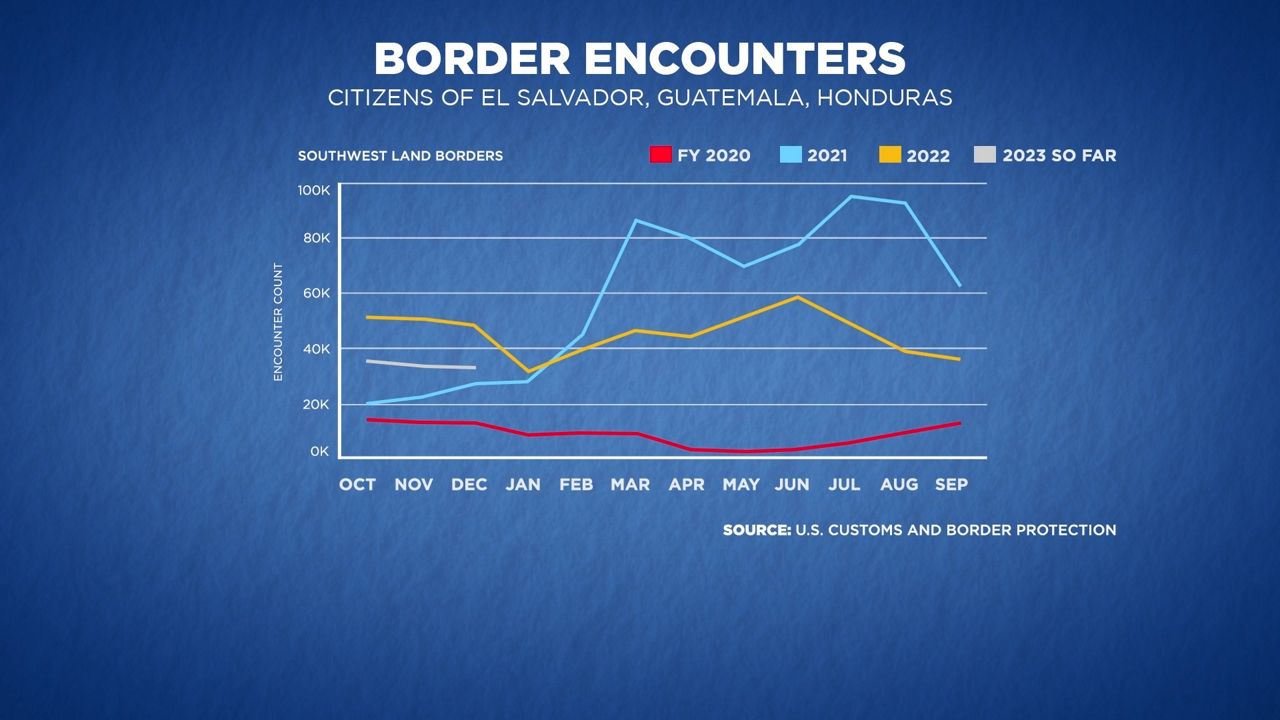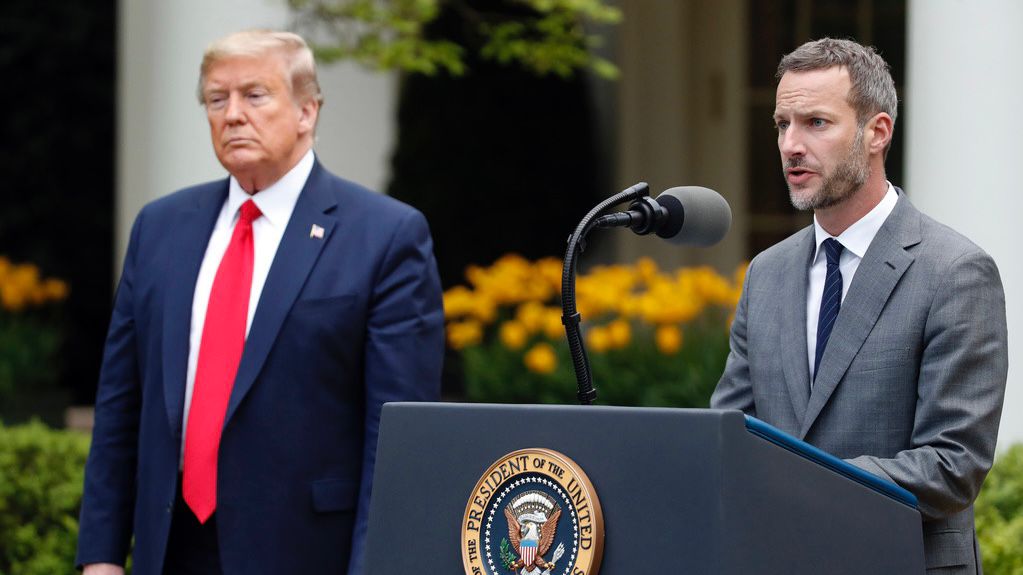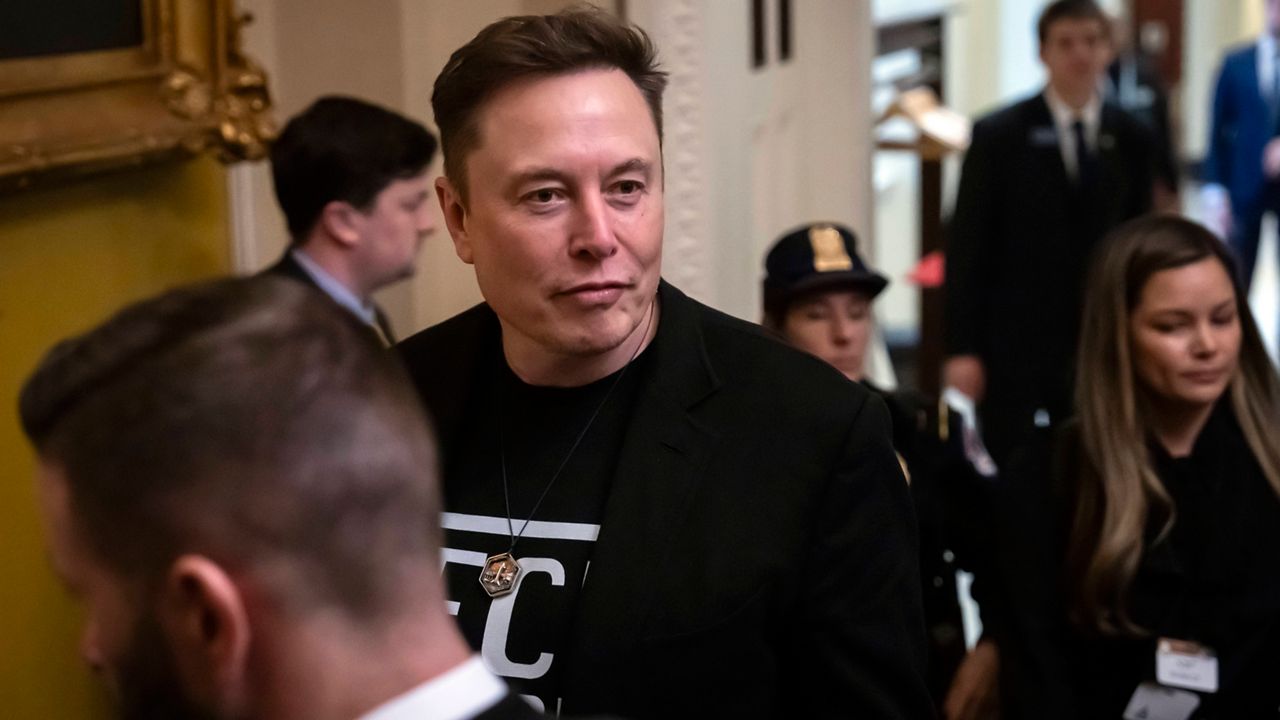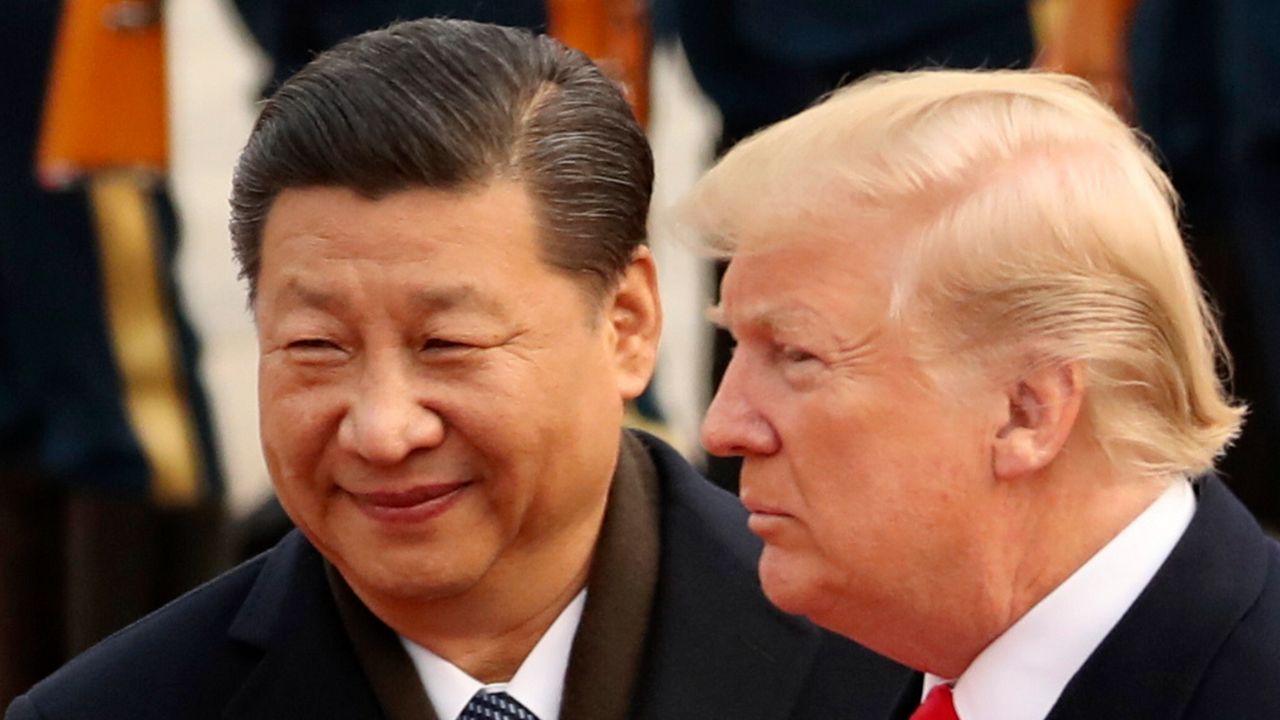“We did it, Joe.”
Vice President Kamala Harris’ historic term in the nation’s second highest political office started with celebration.
The original video of Harris calling President Joe Biden to celebrate their victory in the 2020 elections has been viewed over 51 million times, and has become a common refrain associated with the two first years of the Biden-Harris administration.
Harris herself is proud of the work she has done, though she has acknowledged there is much more work to do.
“I have no doubt about the strength of the work that we have done over the past two years,” she said during a visit to the Philippines in late 2022.
As vice president, Harris’ job – like those before her – has taken her around the world, visiting countries in Asia, the Americas and Europe over the past two years.
The vice president’s often vague and limited job has historically led to griping. Harris’ own portfolio stretches from the solemn, like attending Tyre Nichols’ funeral in Memphis, to the to the constitutional, in presiding over the Senate.
But Harris has several history-making differences to her predecessors: not only is she the first woman to hold the office of vice president, she is also the first Black person and first person of South Asian descent to hold the office.
Though historic, Harris’ first two years as vice president have not been without their challenges. But she seems prepared for an additional term in office should Biden run again.
Here’s a look at Harris’ time in the vice president’s office and what the future might hold.
At the outset of her time in office, Biden charged Harris with stemming illegal crossings from three central American countries: El Salvador, Guatemala and Honduras.
Harris quickly made a name for herself in the highly divisive political topic.
Visiting Guatemala in June 2021, she said to those who would travel illegally to the United States: “Do not come. Do not come. The United States will continue to enforce our laws and secure our border.”
There have recently been record arrests at the southern border, with over 2.3 million encounters on the border in 2022. In each month since Fiscal Year 2023 began in October, there have been well over 200,000 interdictions along the southern border, per federal data.
Politically, the White House is feeling heat from both sides.
A closer look, though, shows Customs and Border Protection encounters have actually dipped with migrants from the three countries in Harris’ portfolio.

And Democrats are motivated by other issues, like abortion. The White House dispatched Harris to appeal to voters on the topic ahead of the midterm elections, when she traveled across the country to host roundtables and other forums on abortion access.
“[Harris] was actually tasked with making sure that certain parts of the base were very much satisfied or felt connected to the administration,” Ange-Marie Hancock, executive director of the Kirwan Institute for the Study of Race and Ethnicity at the Ohio State University, told Spectrum News. “She was very much talking to reproductive rights groups, that she was talking to other parts of the Democratic coalition like, you know, base African-American voters or voters who care about voting rights.”
That base will be key to overcoming both Harris’ and Biden’s mediocre approval ratings.
And Harris has continued the fight in the months since the midterm elections, leading the administration’s response on commemorating what would have been the 50th anniversary of Roe v. Wade in January.
Harris methodically detailed fights throughout history for certain liberties, such as civil rights and the right to vote for women, and tied that to access for abortion, which Harris called the “fundamental, constitutional, right of a woman to make decisions about her own body.”
The decision for Harris to speak in Tallahassee, the state capital, reflects how the battle lines have shifted since last summer. Now that there’s no more national right to abortion, battles over the issue will play out in individual state houses rather than in the halls of Congress or before the Supreme Court.
Other issues will likely persist at least through the remainder of Biden and Harris’ first term in office – like police reform. In the wake of Tyre Nichols’ death at the hands of Memphis police, the White House and Democrats in Congress are facing renewed pressure to pass comprehensive criminal justice reform.
At Nichols’ funeral Wednesday in Memphis, Tennessee, Harris said the White House would settle for nothing less than ambitious legislation to address police brutality.
“We should not delay. And we will not be denied,” Harris said. “It is non negotiable.”
Bipartisan efforts in Congress to reach an agreement on policing legislation stalled more than a year ago, and Biden ended up signing an executive order named for George Floyd, whose murder at the hands of Minneapolis police set off nationwide protests nearly three years ago.
Vice President Kamala Harris was among those at Tyre Nichols’ funeral in Memphis this week. Thursday, she and Biden hosted a meeting with Black women leaders on Reproductive Health to celebrate the 30th anniversary of the Family Medical Leave. Friday, she joins President Joe Biden in Philadelphia for an event focusing on the economy.
It continues her high-profile schedule that could intensify if, as expected, she joins President Joe Biden’s ticket and runs for another four-year term.
Harris is giving every sign she’s in for four more years, even if the political challenge toughens.
Biden is widely expected to announce his bid for a second term in office sometime this month, possibly at or after his State of the Union Address next week – but there are lingering questions about certain aspects of his candidacy, not least of which being his age.
“Age is something that will be covered,” Hancock said in part. “And so then the questions would then filter down to his potential replacement, Vice President Harris. So we would expect that kind of question.”
Biden, who turned 80 on Nov. 20, has said it’s “totally legitimate” for voters to question whether someone his age can manage the demanding stresses of the American presidency, adding people should judge for themselves whether he is up to the task.
A number of establishment Democrats have thrown their weight behind another Biden-Harris run.
In an interview with CNN in mid-December, Senate Majority Leader Chuck Schumer, D-N.Y., and former House speaker Rep. Nancy Pelosi, D-Calif., encouraged Biden to seek reelection.
“I think President Biden has done an excellent job as President of the United States,” Pelosi, who stepped aside as leader of House Democrats in order to shepherd in a new generation of leaders, said at the time. “I hope that he does seek reelection.”
“He’s been involved for a long time so he has great knowledge of the issues, and the challenges we face,” she said. “And he’s the most empathetic president, he connects with people.”
“The vision, the knowledge, the strategic thinking is all here,” Pelosi continued, pointing to her head. “The empathy is from the heart, and I think he’s a great president.”
Schumer concurred: “Look at what he’s accomplished.”
Sen. Elizabeth Warren, D-Mass., on Sunday also threw her support behind a second Biden-Harris term after initially appearing lukewarm on Harris’ appearance on the ticket.
“I fully support the President’s and Vice President’s re-election together, and never intended to imply otherwise,” Warren told WGBH News, a Boston-area NPR affiliate, in a statement Sunday. “They’re a terrific team with a strong record of delivering for working families.”
Privately, some Democrats have reportedly voiced concerns about Harris’ potential beyond vice presidency. Should she and Biden be reelected in 2024 – or on the slim chance Biden decides not to seek a second bid at president – Harris would be a likely frontrunner for the nation’s highest office.
The Associated Press contributed to this report.









